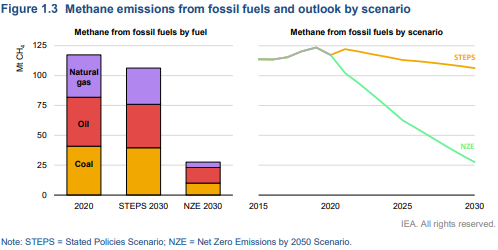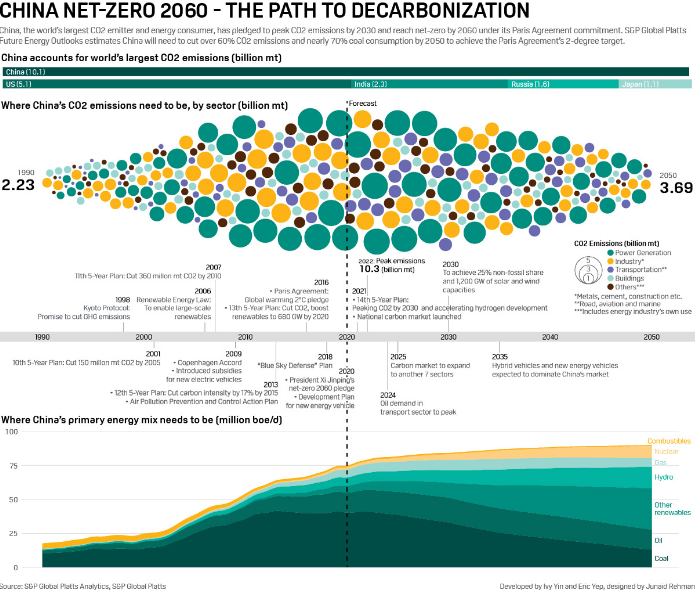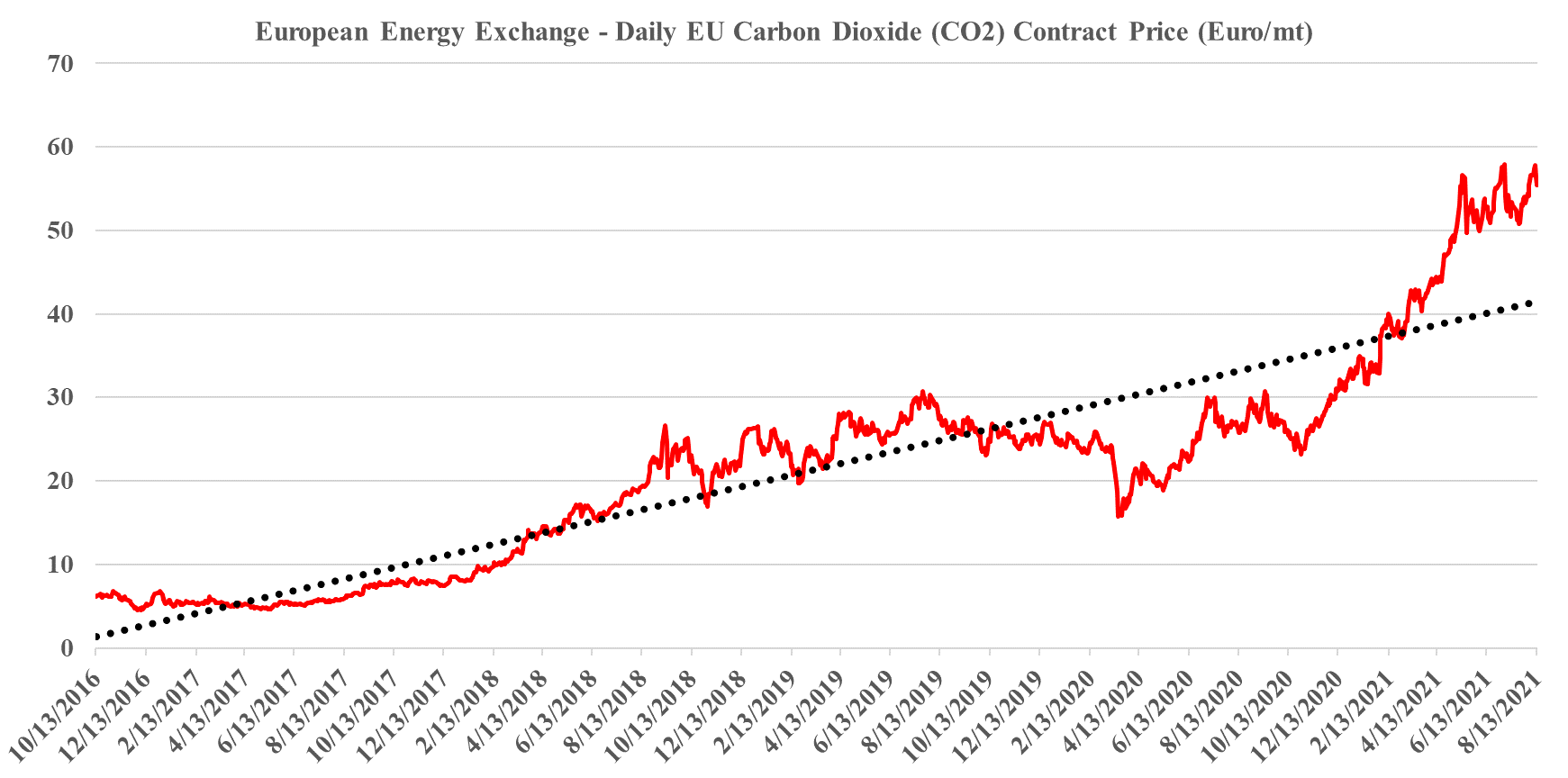The methane chart below is another reminder of how important it is for governments to increase their demands on methane emitters to find solutions to cut leakage. The current stated policies are grossly inadequate, and while we are seeing some of the majors taking proactive steps to reduce emissions, the problems are more acute among the independents in the West as well as abandoned wells that might have no current ownership and operators outside the US and Europe. We keep talking about the need for COP26 to focus on natural gas, and this would be one of the key issues on which a global agreement would help. See several of our ESG reports for more on this subject.
Natural Gas Is Not The Focus Of COP26, But It Should Be
Oct 7, 2021 2:35:47 PM / by Graham Copley posted in Methane, Emissions, natural gas, methane emissions, COP26, leakage
Inflation Challenges In Europe; Overall Challenges In China
Sep 8, 2021 2:02:16 PM / by Graham Copley posted in LNG, Emissions, Carbon Price, Emission Goals, Inflation, China, carbon values, carbon emissions, COP26
Europe is likely to be a test case of how much inflation a country or region is willing to bear on its path to clean energy. Costs are rising in Europe, as LNG markets tighten and as carbon prices rise. The net result is increased power prices, with reports of unhappiness in many countries – this is a topic we have discussed at length in our dedicated ESG and climate work and was a focus of last week's report – linked here.
Will The Climate Frenzy Leave Plastic Waste Ignored For Now?
Aug 13, 2021 11:46:37 AM / by Graham Copley posted in ESG, Climate Change, Plastic Waste, Plastics, CCS, CO2, Emissions, Carbon Price, carbon abatement, climate, IPCC, Plastics producers, COP26, virgin plastic, plastic tax
As we sift through the positioning for the upcoming COP26 meeting and the attention focusing report from the IPCC this week, it is a reasonable question to ask what this means for the plastic waste issue. If governments, lobbyists, and activists are likely to be more focused on climate change action over the next few years, which seems to be a reasonable conclusion, will there be the bandwidth for plastic waste? The plastic waste issue is less open to interpretation than the climate change issue and is a visible problem for all, but if governments need to prioritize where they spend their incremental dollar, and/or where they provide incentives of penalties, the climate is going to be pushed to the front of the line in our view. Plastics producers will have to deal with emissions, like any other industrial user of power and heat. The risk is that local governments, looking for revenue to support climate initiatives see taxing virgin plastic (or unrecycled plastic) as a way to both push plastic waste initiatives forward and raise revenue. Adding a plastic tax in the US to the superfund proposal in the infrastructure bill would be hitting the chemicals industry from two sides and would give bodies like the ACC far more grounds for pushback. For more on the IPCC analysis see our ESG & Climate Change report from this week.




